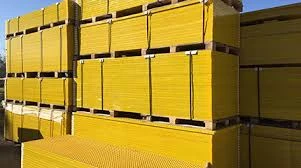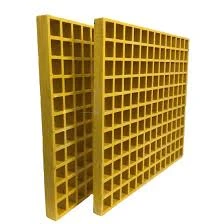
-
 Afrikaans
Afrikaans -
 Albanian
Albanian -
 Amharic
Amharic -
 Arabic
Arabic -
 Armenian
Armenian -
 Azerbaijani
Azerbaijani -
 Basque
Basque -
 Belarusian
Belarusian -
 Bengali
Bengali -
 Bosnian
Bosnian -
 Bulgarian
Bulgarian -
 Catalan
Catalan -
 Cebuano
Cebuano -
 China
China -
 China (Taiwan)
China (Taiwan) -
 Corsican
Corsican -
 Croatian
Croatian -
 Czech
Czech -
 Danish
Danish -
 Dutch
Dutch -
 English
English -
 Esperanto
Esperanto -
 Estonian
Estonian -
 Finnish
Finnish -
 French
French -
 Frisian
Frisian -
 Galician
Galician -
 Georgian
Georgian -
 German
German -
 Greek
Greek -
 Gujarati
Gujarati -
 Haitian Creole
Haitian Creole -
 hausa
hausa -
 hawaiian
hawaiian -
 Hebrew
Hebrew -
 Hindi
Hindi -
 Miao
Miao -
 Hungarian
Hungarian -
 Icelandic
Icelandic -
 igbo
igbo -
 Indonesian
Indonesian -
 irish
irish -
 Italian
Italian -
 Japanese
Japanese -
 Javanese
Javanese -
 Kannada
Kannada -
 kazakh
kazakh -
 Khmer
Khmer -
 Rwandese
Rwandese -
 Korean
Korean -
 Kurdish
Kurdish -
 Kyrgyz
Kyrgyz -
 Lao
Lao -
 Latin
Latin -
 Latvian
Latvian -
 Lithuanian
Lithuanian -
 Luxembourgish
Luxembourgish -
 Macedonian
Macedonian -
 Malgashi
Malgashi -
 Malay
Malay -
 Malayalam
Malayalam -
 Maltese
Maltese -
 Maori
Maori -
 Marathi
Marathi -
 Mongolian
Mongolian -
 Myanmar
Myanmar -
 Nepali
Nepali -
 Norwegian
Norwegian -
 Norwegian
Norwegian -
 Occitan
Occitan -
 Pashto
Pashto -
 Persian
Persian -
 Polish
Polish -
 Portuguese
Portuguese -
 Punjabi
Punjabi -
 Romanian
Romanian -
 Russian
Russian -
 Samoan
Samoan -
 Scottish Gaelic
Scottish Gaelic -
 Serbian
Serbian -
 Sesotho
Sesotho -
 Shona
Shona -
 Sindhi
Sindhi -
 Sinhala
Sinhala -
 Slovak
Slovak -
 Slovenian
Slovenian -
 Somali
Somali -
 Spanish
Spanish -
 Sundanese
Sundanese -
 Swahili
Swahili -
 Swedish
Swedish -
 Tagalog
Tagalog -
 Tajik
Tajik -
 Tamil
Tamil -
 Tatar
Tatar -
 Telugu
Telugu -
 Thai
Thai -
 Turkish
Turkish -
 Turkmen
Turkmen -
 Ukrainian
Ukrainian -
 Urdu
Urdu -
 Uighur
Uighur -
 Uzbek
Uzbek -
 Vietnamese
Vietnamese -
 Welsh
Welsh -
 Bantu
Bantu -
 Yiddish
Yiddish -
 Yoruba
Yoruba -
 Zulu
Zulu
Jan . 14, 2025 10:23
Back to list
Winding Machines for Pipes & Tanks
Fiberglass pipes and fittings have become indispensable materials in the shipbuilding industry, offering unmatched advantages that steel and other traditional materials struggle to rival. When it comes to choosing the right materials for ship construction, one must weigh factors like durability, cost-effectiveness, and environmental impact. Here's why fiberglass stands out as an exemplary material in maritime applications.
From an environmental perspective, fiberglass is a more sustainable option compared to traditional materials. The production process of fiberglass consumes fewer natural resources and generates less waste. As industries worldwide shift towards greener practices, fiberglass aligns well with environmental regulations and certifications sought by modern shipbuilders. This shift is not just beneficial to the environment but also positions companies as forward-thinking leaders in sustainable practices, enhancing their reputation among increasingly eco-conscious consumers and stakeholders. Trust in fiberglass technology is continuously growing within the maritime sector, supported by a wealth of expertise and experience from industry veterans. Esteemed maritime engineers and shipbuilders endorse fiberglass for its unparalleled properties, sharing success stories that accentuate its benefits. These experts and experienced professionals offer detailed insights into the material's performance, further solidifying its credibility. White papers published by respected institutions highlight numerous successful deployments of fiberglass pipes and fittings in top-tier maritime projects worldwide, reinforcing the material's authoritative status in the sector. In conclusion, adopting fiberglass pipes and fittings in shipbuilding projects isn't just a trend but a well-founded industry shift backed by experience, expertise, authoritativeness, and trustworthiness. The undeniable benefits—from superior durability and optimal performance to cost-efficiency and environmental friendliness—make fiberglass an ideal choice for cutting-edge maritime engineering. As the shipbuilding industry continues to evolve, embracing materials like fiberglass will be crucial in navigating the future's challenges and opportunities.


From an environmental perspective, fiberglass is a more sustainable option compared to traditional materials. The production process of fiberglass consumes fewer natural resources and generates less waste. As industries worldwide shift towards greener practices, fiberglass aligns well with environmental regulations and certifications sought by modern shipbuilders. This shift is not just beneficial to the environment but also positions companies as forward-thinking leaders in sustainable practices, enhancing their reputation among increasingly eco-conscious consumers and stakeholders. Trust in fiberglass technology is continuously growing within the maritime sector, supported by a wealth of expertise and experience from industry veterans. Esteemed maritime engineers and shipbuilders endorse fiberglass for its unparalleled properties, sharing success stories that accentuate its benefits. These experts and experienced professionals offer detailed insights into the material's performance, further solidifying its credibility. White papers published by respected institutions highlight numerous successful deployments of fiberglass pipes and fittings in top-tier maritime projects worldwide, reinforcing the material's authoritative status in the sector. In conclusion, adopting fiberglass pipes and fittings in shipbuilding projects isn't just a trend but a well-founded industry shift backed by experience, expertise, authoritativeness, and trustworthiness. The undeniable benefits—from superior durability and optimal performance to cost-efficiency and environmental friendliness—make fiberglass an ideal choice for cutting-edge maritime engineering. As the shipbuilding industry continues to evolve, embracing materials like fiberglass will be crucial in navigating the future's challenges and opportunities.
Next:
Related Products
Latest news
-
Exploring the Benefits of Top Hammer Drifter Rods for Enhanced Drilling PerformanceNewsJun.10,2025
-
High-Precision Fiberglass Winding Machine for GRP/FRP Pipe Production – Reliable & Efficient SolutionsNewsJun.10,2025
-
FRP Pipes & Fittings for Shipbuilding - Corrosion-Resistant & LightweightNewsJun.09,2025
-
Premium FRP Flooring Solutions Durable & Slip-ResistantNewsJun.09,2025
-
Premium Fiberglass Rectangular Tanks Durable & Lightweight SolutionNewsJun.09,2025
-
Tapered Drill String Design Guide Durable Performance & UsesNewsJun.09,2025









